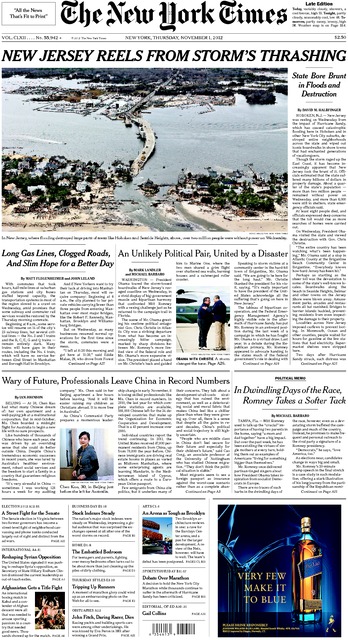
China is an enigmatic place; so too is the global flow of its people, the largest diaspora in the world. Ian Johnson's Nov. 1 front-page story in The New York Times talked about the record number of Chinese leaving China, fleeing environmental degradation, lack of freedoms, and corruption. Middle-class people in China "don't feel secure in their [or their children's] future" and "don't think the political situation is stable," Cao Cong, an associate professor at the University of Nottingham, tells Johnson.
Last week, Pulitzer Center and The Christian Science Monitor published a series of articles on "Brain Gain," which talks about the record number of Chinese who are returning to China, as well as Brazilian and Polish emigres returning to their homelands. The returnees form part of a reverse brain drain due to economic stagnation in developed countries and the spread of technology. Pulitzer Center grantees Sara Miller Llana, Peter Ford and Robert Marquand wrote that the number of Chinese expatriates returning home each year has risen more than ten-fold since 2000.
The people profiled in Johnson and Ford's pieces reflect these two seemingly conflicting sides of China: incredible economic growth and oppressive government policies. Johnson finds that the political situation plays heavily into people's desire to leave China. A couple fled to Australia for religious freedom, a man joins a trend and invests $500,000 in a US project to receive a green card, and farmers scrape together enough money to send their children abroad to school as an insurance policy to get out of China one day.
In Ford's pieces, foreign-educated Chinese extol the job opportunities available in China. One man, Steven Bai, returned to China after being educated in Australia and staying on to work for two years. He told Ford "Now I have a good job in a big company. The career opportunities are much better here." It's nice to be wooed: China is investing in incentives to lure its talent home. But as Ford found, it's hard to get real numbers or facts about the incentive programs.
The comings and goings have been particularly heavy on the goings when it comes to studying abroad. Ford writes that since 1978, 1.5 million Chinese have studied in other countries, often not returning home. Both Johnson and Ford note a 40 percent increase in students returning in 2011 from the year before, reflecting stagnating job opportunities in Western economies.
The question remains: Will the Chinese accept the country's double-edged sword? Or will China's government heed the silent exodus' call for change?
Share your story and thoughts below.




